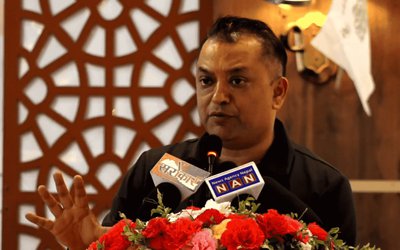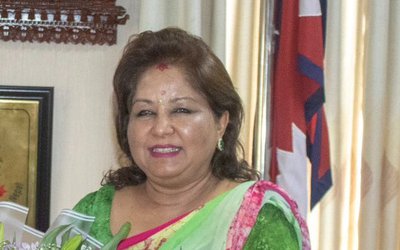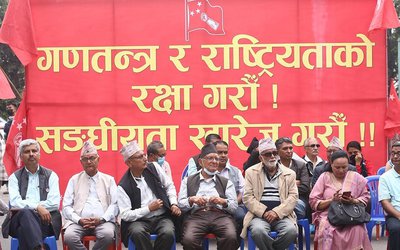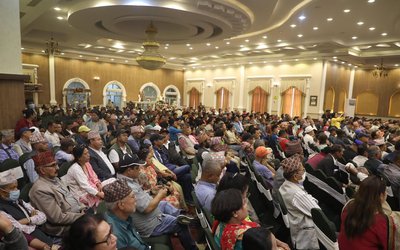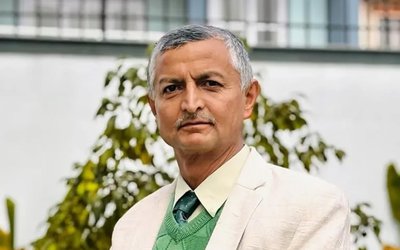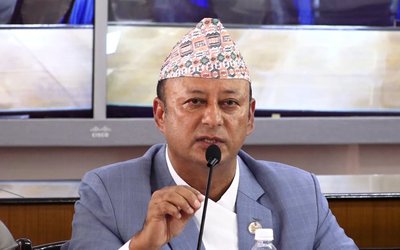
Jean Lebel, President of Canada’s International Development Research Centre and Nadir Patel, High Commissioner of Canada to India announced a new initiative to help Nepali communities rebuild following the 7.8 magnitude earthquake that hit the country in April 2015.
According to a press release issued by Archana Mirajkar Senior Media and Communications Officer at Canadian High Commissioner in New Delhi, this $1.2 million investment will restore housing, public buildings, and infrastructure, as well as promote better mitigation and management for future natural disasters. This initiative contributes to wider Government of Canada reconstruction efforts in Nepal.
Working with a local partner, the International Centre for Integrated Mountain Development (ICIMOD), this partnership will support rehabilitation and reconstruction activities in Dhungentar ward. This initiative will strengthen the capacities of communities and institutions for disaster risk management and climate change adaptation, and build eco-friendly, climate and earthquake resilient homes. The disaster risk management and adaptation capabilities and practices that are developed and refined will be scaled up to help other communities better prepare for climate and non-climate hazards.
The Government of Canada has so far provided $23 million in humanitarian assistance funding in response to the crisis, which has been directed to experienced humanitarian partners, including UN humanitarian agencies, Canadian NGOs and the International Federation of Red Cross and Red Crescent Societies (IFRC).
“This initiative will support mountain communities in their rebuilding and rehabilitation efforts following the earthquake of 2015,” said IDRC President Jean Lebel “and the knowledge generated will be shared in the wider region to improve disaster planning and preparedness to reduce the devastating impacts of such events.”
“In the aftermath of last year’s earthquake in Nepal, Canada provided a timely and comprehensive response to humanitarian needs. Canada remains committed to work with Nepal in supporting the most vulnerable people affected by this tragedy. The ICIMOD project supported by IDRC will help in the long term rehabilitation of the affected people,’ said the High Commissioner for Canada to India, Mr. Nadir Patel.
“While it is important to rebuild infrastructure after the earthquake, it is critical that the focus be on rebuilding livelihoods. So in addition to road, irrigation and building reconstruction, the project will focus on community resilience with a special focus on mountain women. The efforts will help the mountain communities to better prepare for climate and non-climate hazards. The whole Hindu-Kush Himalayas is a high hazard region for earthquakes, and the lessons learned need to be transferred to other countries in the region, a role that ICIMOD as regional, intergovernmental organization can play.” Dr. David Molden, Director General, ICIMOD.
The project supports rebuilding in Nepal in the context of natural disaster management, risk management, rehabilitation, strengthening livelihoods and community resilience.
This work builds on IDRC investment in Nepal since 1972
IDRC has been working on climate and water related challenges in the region for more than 20 years
The $1.2 million initiative will build earthquake resilient housing for 100 families.
About Canada’s International Research Centre
Part of Canada’s foreign affairs and development efforts, IDRC invests in knowledge, innovation, and solutions to improve lives and livelihoods in the developing world. Bringing together the right partners around opportunities for impact, IDRC builds leaders for today and tomorrow and helps drive large-scale positive change.
- IME GROUP: Expands Into Paper Industry
- Mar 24, 2025
- CPN UML: Instigated By India
- Mar 23, 2025
- ADB’S CHIEF ECONOMIST: Nepal Reduces Poverty
- Mar 11, 2025
- FM DR. DEUBA: A Successful Visit
- Mar 11, 2025
- MD GHISING: Target Of Personal Grudge
- Mar 09, 2025
